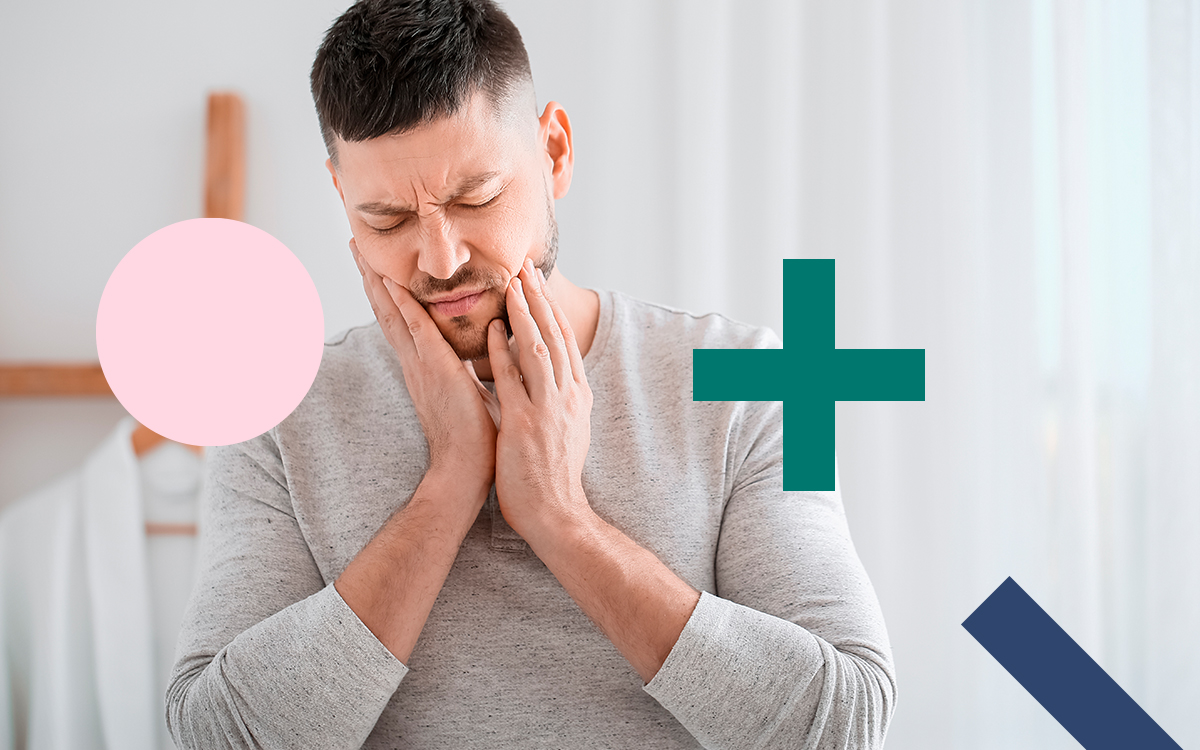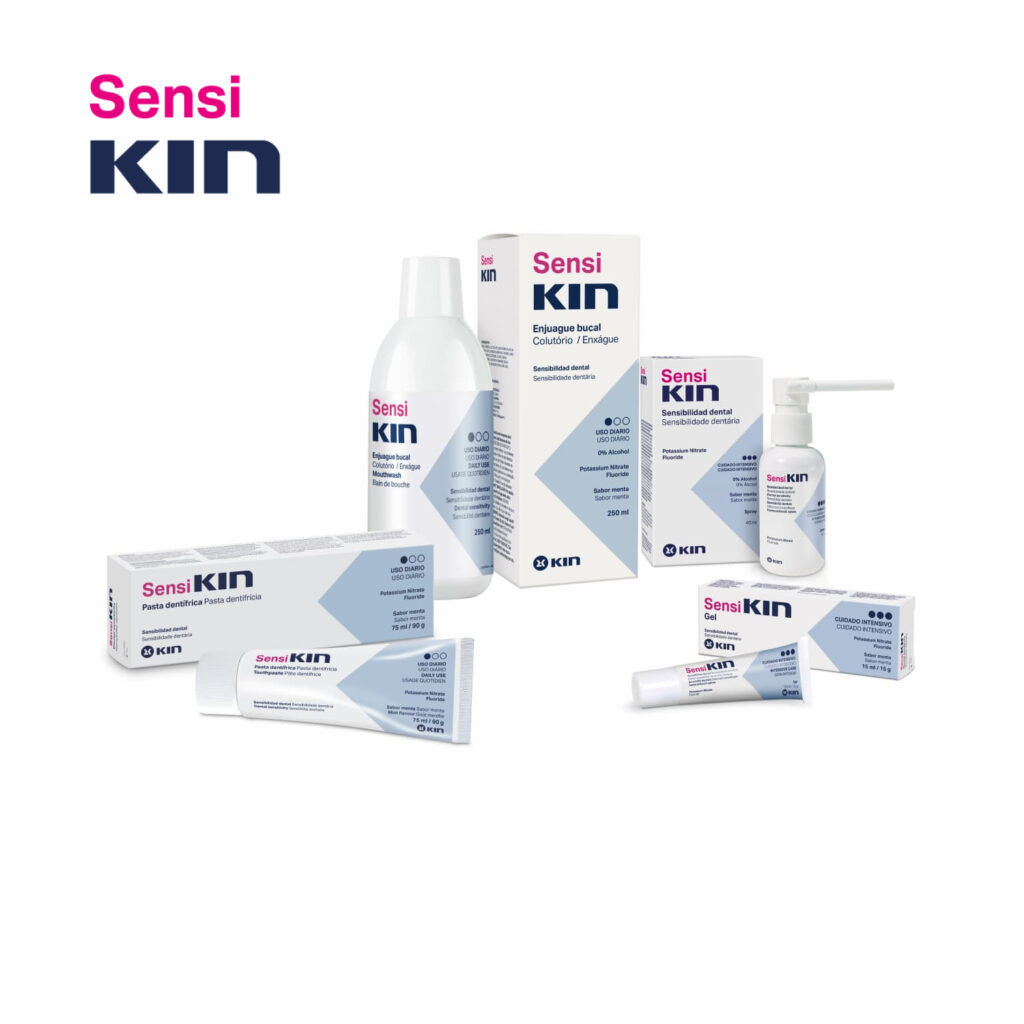Dental sensitivity to cold is a problem that affects more and more people. Suffering this excruciating pain in the teeth with every exposure to a cold stimulus does not have to be something recurrent if you know how to treat it properly. To do this, the key is to know why the cold on the teeth causes such discomfort, and to find the best solution.
You are probably familiar with tooth sensitivity to cold foods and beverages. However, there are people who, in winter, with the drop in temperatures, experience an even greater sensation simply by facing the ambient cold.
Do you want to find out how cold affects our teeth? We tell you everything you need to know about dental sensitivity to cold, and how to combat it with a few simple recommendations.
What is tooth sensitivity?
Tooth sensitivity, or dentin hypersensitivity, is a sharp pain that occurs in the nerve of the tooth due to the exposure of the dentin. When the dentin comes into contact with an external stimulus, a very characteristic momentary prickling is felt.
Dentin is the second hardest tissue in the human body, right after the dental enamel that covers it. When the enamel is damaged or loses thickness, stimuli from the outside can pass through the thousands of tiny channels in the dentin, which connect directly to the nerve endings in the pulp of the tooth.
We speak specifically of tooth sensitivity when this increased sensitivity in the tooth is not related to a specific oral pathology, such as caries or a gum infection. In which case it would be necessary to act in a very different way.
Why do teeth hurt when it is cold?
The function of dentin is to protect and at the same time connect the tissue at the core of each tooth, known as the pulp, to the outside. Naturally, dentin is covered by enamel and gingiva, but when these two protective barriers fail, the nerve endings of the tooth are exposed.
The dentin of the teeth can be exposed for various reasons, causing a cold reaction in the teeth. The vast majority of these are lifestyle related and occur gradually without patients realizing the damage.
- Inadequate brushing with more force than necessary or use of a toothbrush with very hard bristles that wear down the enamel or cause gum recession.
- Use of highly abrasive toothpastes that damage tooth enamel.
- Frequent consumption of acidic beverages and foods, such as carbonated beverages, juices or citrus fruits.
- Deterioration of dental enamel due to bruxism.
- Consumption of certain medications and medical treatments that damage tooth enamel or cause gum irritation.
- Diseases that cause an extremely acidic environment in the oral cavity, such as hiatal hernia, reflux or bulimia nervosa.
Effect of temperature on teeth
As we have already seen, dentin is a tissue that is highly sensitive to temperature changes. It is full of tiny channels leading directly into the tooth, through which stimuli from the outside can enter, causing increased sensitivity in the nerve.
In addition to the momentary discomfort suffered by the patient with dental sensitivity when subjected to an external stimulus, if this problem is not treated correctly, the damage to the tissues could increase over time.
Due to extreme temperatures, such as constant exposure to cold and heat, the internal tissues of the teeth expand and contract. This situation could cause small cracks in both the enamel and the dentin itself, which will gradually spread and worsen the situation.
How to relieve tooth sensitivity?
The effect of cold on teeth can be adequately addressed by finding the most effective solution for each patient.
In addition to regular visits to the dentist, in order to make an early diagnosis for any type of oral problem, there are other recommendations that can be carried out by changing or acquiring some simple habits:
Oral hygiene
Maintaining good oral hygiene all year round, in winter and at any time of the year, is essential to protect teeth against the cold. A healthy mouth reduces the risk of suffering from any type of oral disease that directly affects the integrity of tooth enamel and gums.
In addition to brushing after every meal, it is advisable to complement oral hygiene with the use of dental floss, interdental brushes and Mouthwash. There are specific products to treat tooth sensitivity. dental sensitivityThere are specific products to treat tooth sensitivity, preventing its appearance or minimizing in a timely manner the discomfort caused by eating hot or cold foods.
Also, do not forget to change your toothbrush every 3 months, opting for a toothbrush with soft filaments, which are much less abrasive for teeth and gums. Say goodbye to tooth sensitivity with our specialized products.
Discover our products for tooth sensitivity

Change of habits
To achieve the best protection for the teeth from the outside, it is also necessary to take care of them from the inside. Leaving aside certain daily habits that could favor dental sensitivity to cold is key for teeth to enjoy better health. Among them we highlight the following:
- Follow a healthy and balanced diet, rich in essential nutrients for the health of teeth and gums. Some of the most important nutrients for strengthen tooth enamel are calcium, vitamin are calcium, vitamin D and vitamin A.
- Avoid or limit the consumption of acidic or excessively sugary foods, as they contribute to the erosion of tooth enamel, in addition to favoring the growth of bacteria that cause cavities and gum infections.
- Avoid harmful habits such as alcohol consumption and smoking.
- Treat bruxism, or the stress-related act of clenching and grinding of the teeth.
- Avoid consumption of very cold food and beverages.
- In the coldest months, breathe preferably through the nose, covering the mouth to reduce contact with the ambient cold.
If you have any doubts about dental sensitivity to cold, consult your dentist directly. Now that you know how cold affects your teeth, you have in your hands all the necessary tools to combat this problem and not let it negatively affect your daily life.


 How to relieve pain with newly placed braces?
How to relieve pain with newly placed braces? How to keep your breath fresh?
How to keep your breath fresh? 10 Tips to take care of the oral health of the little ones
10 Tips to take care of the oral health of the little ones



